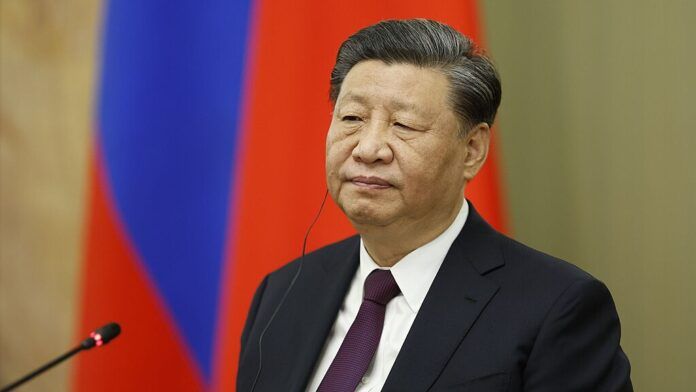China’s President Xi Jinping announces a massive funding package and job creation initiative at the forum on China-Africa Cooperation, emphasizing infrastructure, clean energy, and enhanced economic ties
In a significant boost to China-Africa relations, President Xi Jinping announced a groundbreaking $51 billion support plan for Africa during the Forum on China-Africa Cooperation (FOCAC) held in Beijing on September 4, 2024. This ambitious three-year initiative aims to bolster infrastructure development, foster economic growth, and create at least one million jobs across the continent.
Speaking to a gathering of over 50 African leaders, Xi Jinping outlined China’s commitment to deepening cooperation with Africa in various sectors including industry, agriculture, infrastructure, trade, and investment. He stressed the strategic importance of this partnership, declaring, “China and Africa account for one-third of the world population. Without our modernization, there will be no global modernization.”
Embed from Getty ImagesThe funding package, amounting to 360 billion yuan ($50.70 billion), will be allocated over the next three years. Of this sum, 210 billion yuan will be provided through credit lines, and a minimum of 70 billion yuan will come from fresh investments by Chinese companies. The rest of the funds will support military aid and other specialized projects. This move marks a significant increase from the $10 billion promised at the 2021 FOCAC summit in Dakar, highlighting China’s intensified focus on Africa.
Xi’s announcement included a pledge to undertake three times as many infrastructure projects in Africa compared to previous commitments. The new projects will focus on “small and beautiful” schemes featuring advanced and green technologies, aligning with China’s recent preference for sustainable development. The president also emphasized the creation of a comprehensive China-Africa network of land and sea connections to facilitate coordinated development.
Despite being the largest bilateral lender to many African nations, Xi did not address the issue of debt in his speech. However, the Beijing Action Plan for 2025-2027, adopted by the delegates, includes provisions for debt repayment postponements and proposes the establishment of an African rating agency to better manage financial relations.
United Nations Secretary-General Antonio Guterres highlighted the challenges African countries face in accessing debt relief and resources, which he warned could lead to social unrest. African lending arrangements vary significantly, with China being a major creditor, particularly to nations like Ethiopia and Kenya. Other debts are owed to Gulf states, European countries, multilateral institutions such as the World Bank, and private bondholders.
In addition to infrastructure, Xi pledged support for 30 clean energy projects in Africa and expressed a willingness to cooperate on nuclear technology. This commitment aims to address the continent’s power deficit, which has hindered industrialization efforts. However, Xi did not reiterate the 2021 promise to purchase $300 billion worth of African goods, instead focusing on expanding market access unilaterally. Analysts have noted that stringent plant sanitary regulations in China have made it challenging to fulfill this pledge.
Despite these challenges, China’s financial support for Africa is set to increase. Last year, China approved loans totaling $4.61 billion, marking the first annual increase in African loans since 2016. This reflects China’s ongoing commitment to strengthening economic ties with the continent.
On the sidelines of the summit, Sierra Leone’s Fisheries and Marine Resources Minister, Princess Dugba, expressed optimism about the new partnership. “China is getting us a fish harbour, which is one of the first of its kind,” she said, underscoring the tangible benefits of this renewed cooperation.
Analysis:
Political Perspective: Xi Jinping’s $51 billion support plan for Africa represents a strategic geopolitical move aimed at reinforcing China’s influence across the continent. By committing substantial financial resources and promising significant job creation, China seeks to strengthen its position as a key partner for African nations. This initiative aligns with China’s broader foreign policy goals of expanding its economic footprint and countering Western influence. The funding also underscores China’s commitment to a multilateral approach, as demonstrated by the participation of numerous African leaders in the FOCAC summit.
Social Perspective: The support plan’s focus on job creation and infrastructure development addresses critical social needs in Africa. By pledging to create one million jobs, China aims to alleviate unemployment and stimulate economic growth. The emphasis on clean energy projects and advanced technologies also reflects a commitment to sustainable development, which can positively impact local communities by improving access to essential services and resources. However, the effectiveness of these initiatives will depend on how well they are implemented and the extent to which they address the specific needs of diverse African populations.
Racial Perspective: While the plan does not directly address racial issues, its implementation will have implications for various demographic groups within Africa. Historically, economic aid and development projects have had mixed outcomes for marginalized communities. The success of China’s initiatives in fostering inclusive development will be closely watched, particularly in regions with significant socio-economic disparities. Ensuring that the benefits of this support are equitably distributed across different racial and ethnic groups will be crucial for the plan’s overall success.
Gender Perspective: The job creation aspect of the support plan has potential gendered impacts, as women in Africa often face higher barriers to employment and economic participation. The creation of one million jobs presents an opportunity to improve gender equality in the workforce, provided that efforts are made to ensure women have equal access to these opportunities. Additionally, investments in infrastructure and clean energy could have indirect benefits for women by improving access to essential services and reducing the burden of energy poverty.
Economic Perspective: Economically, the $51 billion support plan is a significant boost for Africa, promising substantial investments in infrastructure and clean energy. This influx of capital is expected to stimulate economic growth and enhance Africa’s development prospects. However, the plan also highlights ongoing concerns about debt and financial management. While the commitment to debt repayment postponements and the establishment of an African rating agency aim to address these issues, the long-term impact of China’s financial support on African economies will depend on the effective management and utilization of the funds.
